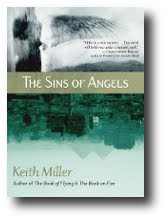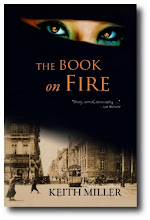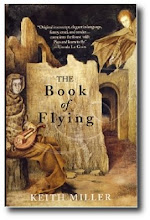
Lawrence Durrell: "Would you rather read Henry James or be crushed to death by a great weight?"
Oscar Wilde: "Mr. Henry James writes fiction as if it were a painful duty."
E. M. Forster: "So enormous is the sacrifice that many readers cannot get interested in James, although they can follow what he says (his difficulty has been much exaggerated), and can appreciate his effects. They cannot grant his premise, which is that most of human life has to disappear before he can do us a novel. . . . Maimed creatures can alone breathe in Henry James’s pages – maimed yet specialised."
Arnold Bennett: "It took me years to ascertain that Henry James's work was giving me little pleasure . . . In each case I asked myself: 'What the dickens is this novel about, and where does it think it's going to?' Question unanswerable! I gave up. Today I have no recollection whatever of any characters or any events in either novel."
T. S. Eliot: "He had a mind so fine that no idea could violate it."
Marilyn "Clover" Adams: "It's not that he 'bites off more than he can chew' but he chews more than he bites off."
H. L. Mencken: "An idiot, and a Boston idiot to boot, than which there is nothing lower in the world."
Vladimir Nabokov: "He writes with a very sharp nib and the ink is very pale and there is very little of it in his inkpot . . . The style is artistic but it is not the style of an artist . . . Henry James is definitely for non-smokers. He has charm (as the weak blond prose of Turgenev has), but that’s about all."
More from Nabokov: "I have read (or rather reread) 'What Maisie Knew.' It is terrible. Perhaps there is some other Henry James and I am continuously hitting upon the wrong one?"
Even more from Nabokov: "Henry James is a pale porpoise."
Virginia Woolf: "Please tell me what merit you find in Henry James . . . We have his works here, and I read them, and can’t find anything but faintly tinged rose water, urbane and sleek, but vulgar, and as pale as Walter Lamb. Is there really any sense in it?"
Jorge Luis Borges: "Despite the scruples and delicate complexities of James his work suffers from a major defect: the absence of life."
Cormac McCarthy (from a New York Times interview): Proust and Henry James don’t make the cut. “I don’t understand them,” he says. “To me, that’s not literature. A lot of writers who are considered good I consider strange."
Jonathan Franzen: "I tried to start Portrait of a Lady last night, which I had read only in college . . . maybe it was too late to read anything, but I became so impatient with the multiple redundancies in the first paragraph that I cast it aside in anger. The first paragraph alone! You really have to be in the mood for Henry James."
And finally, Mark Twain said he would rather "be damned to John Bunyan's heaven" than read Henry James's novel The Bostonians.





This would be pretty much the opposite of 'damning with faint praise'. I've never read Henry's stuff and am now petrified to comtemplate the possibility.
ReplyDeleteThey should all be ashamed of themselves, wherever they are, since James could write circles around the lot of them. (Eliot knew better--with the remark out of context the reader may miss that it was high praise).
ReplyDelete"...wherever they are..." Wherever they are? WHEREVER THEY ARE? WHEREVER... WHEREVER THEY ARE? Wherever are they?
DeleteThanks for chipping in, Philosophy Teacher. But do you seriously believe that James could write circles around Nabokov? Have you read Lolita? Speak, Memory?
ReplyDeletehonestly i'm trying to remember lolita right now and i don't remember the characters. i'm reading the portrait of a lady right now and Isabel Archer is honestly the most realistic character i've ever encountered. Lolita was endless rhetorical flourishes, and i hardly remember the characters, plot, worldview, or even a sentence or idea from the book. I think Nabokov is probably much more overrated.
DeleteI've just read James' "The Beast in the Jungle". I struggled to maintain the interest in the characters necessary to move beyond the third chapter. It seemed over-analytical and indulgent, and their relationship psychologically unconvincing. I'm reassured that I'm not alone in failing to engage consistently with his work.
ReplyDeleteHaving said that, I can recommend "The Turn of the Screw" where his distinct style is well-applied in building suspense and suggesting horror indirectly. Based on this, I'm going to try "The Jolly Corner".
To me James is THE best writer of all time. Of course the other writers have their merits. What I don't understand is the remarks by Borges who accuses James's work of 'absence of life' . The novels of James full of life, although perhaps those lives are too fine for Mr Borges to appreciate. But maybe Nabokov was right: Henry James is for "non-smokers" like me.
ReplyDeleteYES,
ReplyDeleteJames could write circles and circles and circles around - on the spot - most definitely most sublimely and without effort, as it were, over the long haul, magnificantly better than Nabakov, but especially while also, as it were, reading very assiduously and immediatly aloud, on the spot, such as while drinking an espresso on the plaza of a Paris cafe in a moist wonderfully muggy night, a tome such as the "The Ambassadors," though a beautiful, most superbly delightful drawing-room or shall we say a saloon drama, on the spot, there are some , someoh so awesome, some magnificent effects - pardon my amenuensis' deplorable spelling - though it is like digging, as it were, on the spot, in a mine shaft with a toothpick, for one hundred so especially and amazingly frustating years, as it were.
On the spot.
So there!
Bravo! Bravissimo! Excellent! Well done!
DeleteI actually sort of agree that these are all valid limitations of James' work. I guess my main objection is that this criticism often seem more applicable to the writers who are speaking. I like Borges but there are hardly human beings in his books. He just writes about infinite libraries and spirals and conspiracy theories haha. And Nabokov is a ridiculously formal, intentionally difficult novelist and I barely remember Lolita, none of the characters seemed remotely as real as Isabel Archer. I read it because it seemed scandalous, but that seems like a gimmick in retrospect. The same with Virginia Woolf. I mean, "Mrs. Dalloway" reminds me of one of James' really long, doozies of a paragraph, and again I have no lasting impression of the characters or plot. Ugh and Eliot, another obscurantist, and the Wasteland to be just plain nihilism, and his Christianity little more than a fear of nihilism. Anyways James certainly seems like a limited author compared to Austen, or Dickens, or Tolstoy, but I think he is superior to really any 20th century novelist I have read.
ReplyDeleteSuperior to Faukkner? Please! Suoperior to Melville?
DeleteI hate reading HJames, butlove to have read him (despite the factthat "The Beasty in the Jungle" influenced theworst, mosr fateful decision in my lifer.
After reading Wings of The Dove and Portrait of A Lady, my opinion tracks that of Lawerence Durrell and the other negative commentary. The hippopotamus can not pick up the pea, and probably can't even recognize the pea or remember what he was trying to pick-up, when he started his books. All style, no life. Nabokov, Woolf are by far superior writers.
ReplyDeleteBorges is quoted grossly out of context. In his preface to "The Abasement of the Northmores," translated in 'Selected Nonfictions,' Borges compares the James of the late novellas to Shakespeare.
ReplyDeleteYes... Henry James is awful alright.
ReplyDeleteReading Henry James produces the same feeling one gets while desperately trying to extricate themselves from a one-sided driveling droning conversation conducted by a monologist with a mucousy stuffed up nasal pharynx.
ReplyDelete